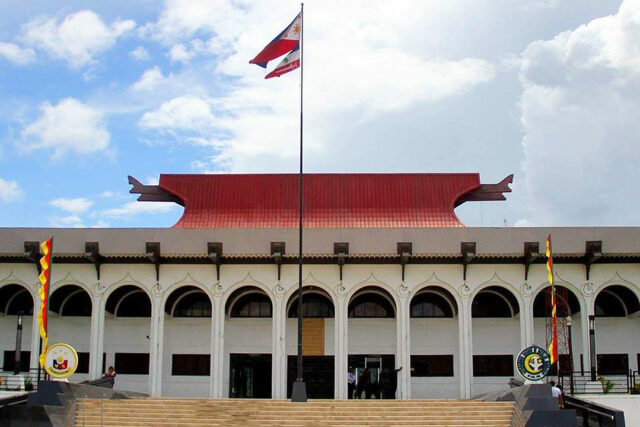Jeepneys may operate till Jan. 31, but consolidation deadline stays — LTFRB
By Ashley Erika O. Jose, Reporter
THE LAND Transportation Franchising Regulatory Board (LTFRB) has issued new guidelines allowing unconsolidated public utility vehicles (PUV) or commuter jeepneys to continue operations until Jan. 31, 2024, providing a one-month grace period beyond the yearend consolidation deadline.
The memorandum order, effective Dec. 25, permits unconsolidated PUVs to operate in areas with less than 60% consolidated authorized units (NAUs).
“To avoid hampering public transportation routes without consolidated TSE (transport service entities), individual operators in said routes shall be allowed to operate until January 31, 2024,” stated the five-page memorandum circular released on Thursday.
The LTFRB, however, will issue show-cause orders to all unconsolidated PUVs, clarifying that units failing to apply for consolidation before the deadline will not be confirmed for registration as PUVs.
The move aligns with the Public Utility Vehicle Modernization Program (PUVMP), mandating operators to consolidate individual franchises under cooperatives or corporations to facilitate the acquisition of new, environmentally friendly transport vehicles.
The Department of Transportation (DoTr) is coordinating with local government units (LGUs) to plan local routes, ensuring passenger demand and required PUV units are met.
“LGUs will assist the LTFRB and DoTr after the Dec. 31, 2023 deadline in the implementation of PUVMP in their jurisdiction, particularly ensuring the adequate supply of PUV,” stated the DoTr.
In Metro Manila, nearly 30% of all units have consolidated, with routes approaching 50%, according to Jesus Ferdinand D. Ortega, Chairperson of the DoTr-Office of Transportation Cooperatives. The government aims to reach at least 65% consolidated units.
SC ORDERS DOTR, LTFRB TO ANSWER PETITION
Also on Thursday, the Supreme Court (SC) ordered the DoTr and the LTFRB to comment on the petition seeking to declare null and void the department order and circulars implementing the PUVMP.
In a four-page order, the SC En Banc required the two transportation agencies represented by Transport Secretary Jaime J. Bautista and LTFRB Chairman Teofilo E. Guadiz III, to personally file their respective comments on the petition within a non-extendible period of 10 days.
The 57-page petition was filed last week by public utility vehicle (PUV) operators and transport groups led by the Pinagkaisang Samahan ng mga Tsuper at Operators Nationwide (PISTON).
The petition sought a temporary restraining order (TRO) against DoTr’s Omnibus Franchising Guidelines, which serves as the framework of PUVMP. It also called for a preliminary injunction on the issuances of LTFRB mandating franchise consolidation and its year-end deadline.
With only a few days left before the deadline for franchise consolidation, PISTON filed on Thursday a supplemental motion before the High Court seeking to expedite its decision on the issue.
“The petitioners likewise pray for the immediate issuance of a TRO to prevent the grave and irreparable injury that the petitioners, the jeepney drivers and operators, their families, the commuters and the public in general will suffer,” read part of the 16-page motion.
Together with another transport group Manibela, PISTON announced that it will mount a protest march to Malacañang on Friday, expecting the majority of the jeepney drivers in Metro Manila to go on strike to join the mobilization.
LABOR SECTOR SEEKS REVIEW OF PUVMP
Meanwhile, labor groups are calling on the government to reconsider pushing through with the PUVMP, citing its effect to the transportation of workers as well as the livelihood of jeepney drivers.
“The nearing deadline for PUV consolidation under the modernization program poses significant concerns for the labor sector, particularly for jeepney drivers and operators,” Jose Sonny G. Matula, president of the Federation of Free Workers (FFW), said in a Viber message.
“Workers, especially commuters, may need to adapt to higher fares and reduced availability of traditional PUVs. This could significantly affect their daily transportation budget and overall economic well-being,” he added.
Mr. Matula cited a joint trade union report to the International Labour Organization (ILO) which stated the PUV modernization plan’s “potential negative impact on the freedom of association.”
“The plan could disenfranchise many jeepney drivers and operators, hindering their ability to collectively represent their interests and negotiate terms beneficial to their livelihood,” he said.
The Partido Manggagawa labor group estimates that about 144,000 people would lose their livelihoods once the consolidation deadline comes.
Deputy Minority Leader and Party-list Rep. France L. Castro said the program would cripple small jeepney operators in the country, which are counted as micro, small, and medium enterprises (MSMEs).
The FFW called on the government to defer the modernization program for more planning and engagement with transport groups.
“The PUV modernization program, drawing upon legal precedents and international labor standards, calls for a balanced approach,” Mr. Matula said.
For his part, Confederation for Unity, Recognition, and Advancement of Government Employees (COURAGE) president Santiago Y. Dasmariñas, Jr. said the passage of bills on wage hikes, regularization of contractuals, and Public Services Labor Relations Bill would help aid government employees most likely to be affected by the PUVMP. — with reports from Jomel R. Paguian and Beatriz Marie D. Cruz











